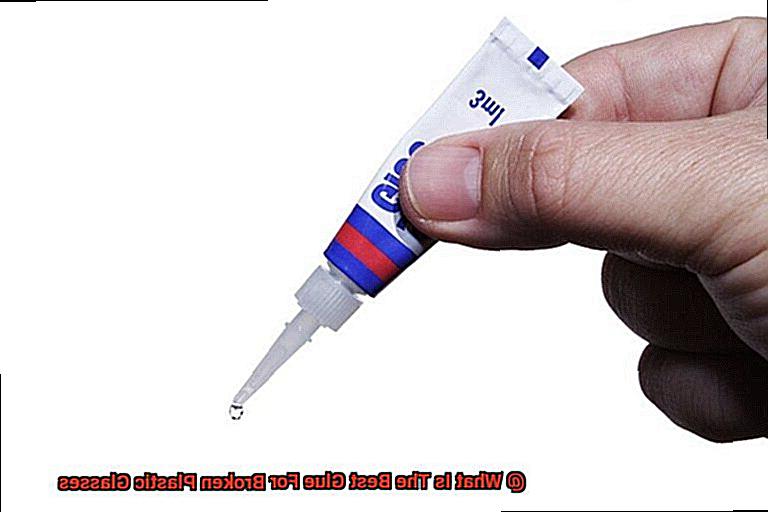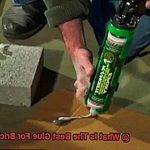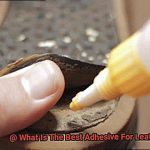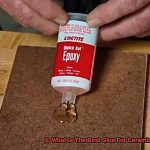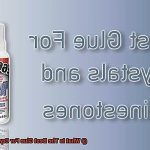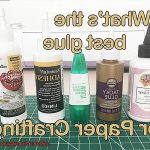We’ve all been there – that gut-wrenching moment when our beloved plastic glasses snap in two. Whether it’s a vintage treasure, a trendy pair of shades, or simply your trusty eyewear, the attachment we have to these accessories can make their sudden demise feel like a personal tragedy.
But don’t despair. Today, we’re diving headfirst into the world of adhesives to uncover the secret to resurrecting your broken plastic glasses. When it comes to repairing these delicate items, choosing the right glue is essential for creating a bond that’s strong and long-lasting.
In this blog post, we’ll be your trusty guide as we explore the top contenders in the market. We’ll weigh their pros and cons, giving you all the information you need to make an informed decision. So let’s jump right in and discover the ultimate solution for mending those broken plastic glasses and restoring them to their former glory.
Types of Glue for Plastic Glasses
Contents
- 1 Types of Glue for Plastic Glasses
- 2 Cyanoacrylate Adhesive (Super Glue)
- 3 Epoxy Resin Glue
- 4 Specialized Plastic Adhesives
- 5 Preparing the Broken Pieces for Repair
- 6 Applying the Glue
- 7 Securing the Broken Pieces Together
- 8 Curing and Drying Time
- 9 Pros and Cons of Glue Repairs
- 10 Professional Repairs or Replacements
- 11 Conclusion
Fear not, for there is a solution that can restore them to their former glory. In this comprehensive guide, we will explore the different types of glue available for repairing plastic glasses. From the quick and strong super glue to the durable bond of epoxy resin, we will uncover the best options, their advantages, and disadvantages. So, let’s dive in and bring those broken glasses back to life.
Super Glue – Quick and Strong:
When it comes to repairing plastic glasses, one of the most popular choices is super glue, also known as cyanoacrylate glue. This incredible adhesive is renowned for its fast-drying properties and its ability to create a strong bond. Super glue works wonders on various types of plastics and is perfect for fixing small cracks or breaks. However, it’s essential to exercise caution as excessive application may leave visible residue on the surface of your beloved glasses.
Epoxy Resin – The Durable Bond:
If you’re looking for a more robust repair option, epoxy resin glue is an excellent choice. Consisting of a resin and a hardener that need to be mixed together before application, epoxy resin creates a bond that is both strong and durable. This adhesive is resistant to water and heat, making it ideal for long-term use on your precious plastic glasses. Keep in mind that epoxy resin requires proper mixing and curing time, so patience is crucial for achieving the best results.
Specialized Plastic Adhesives – Tailored Solutions:
For those seeking an adhesive specifically designed for bonding different types of plastics together, specialized plastic adhesives are the go-to option. These adhesives offer a strong and long-lasting bond, ensuring your repaired glasses stay intact for years to come. However, it’s important to note that specialized plastic adhesives may not be as widely available as other glues. Be sure to check compatibility with your glasses’ material before making a purchase.
Preparation is Key:
Before applying any glue, it’s vital to prepare the broken surfaces thoroughly. Take the time to clean them, removing any dirt, grease, or residue that may weaken the bond. Applying a small amount of glue prevents excess seepage and ensures a neat repair job. Remember to hold the broken pieces together firmly until the glue dries completely, guaranteeing a solid and seamless connection.
Temporary Fix vs. Permanent Solution:
While gluing broken plastic glasses can be an effective solution, it’s important to recognize that it may not always provide a permanent fix. Depending on the severity of the damage and the quality of the glue used, the repair might wear off over time or under certain conditions. For extensive damage, it’s advisable to consider replacing the glasses altogether, ensuring a long-lasting solution.
Cyanoacrylate Adhesive (Super Glue)
Fear not, for we have the solution. In this comprehensive guide, we will delve into the properties and uses of cyanoacrylate adhesive, better known as super glue, to resurrect your beloved eyewear. With its lightning-fast bonding strength, super glue is your go-to adhesive for quick and robust repairs. So join us on this adventure as we explore how this trusty adhesive can work wonders for your broken plastic glasses.
Advantages:
Swift and Powerful Bonding:
Super glue’s greatest advantage lies in its ability to form an incredibly strong bond in mere seconds. Once applied, the adhesive swiftly hardens, creating a durable connection that can withstand the rigors of everyday use.
Versatility at Its Finest:
Cyanoacrylate adhesive is a true chameleon when it comes to compatibility with various plastic types. Whether your glasses are made of polycarbonate, acrylic, or nylon, this adhesive can handle them all. No matter the material, super glue has got your back.
Seamless Application:
With its user-friendly packaging and precise applicators, using super glue is a breeze. The liquid consistency ensures effortless spreading across the broken surfaces, guaranteeing a secure bond. Say goodbye to messy repairs.
Disadvantages:
Potential Brittleness:
While super glue creates a formidable bond, it may lack flexibility under extreme force or stress. As a result, there is a higher risk of the bond breaking if mishandled or subjected to excessive pressure. Handle with care.
Residue Reminders:
When applying super glue, precision is key. Inadequate application or excess glue may leave behind visible residue or unsightly marks on the surface of your glasses. Follow the manufacturer’s instructions diligently to minimize this issue.
Tips for Successful Repair:
- Thoroughly clean the broken parts before applying super glue to ensure optimal adhesion.
- Apply the adhesive sparingly and evenly, avoiding excess glue squeeze-out.
- Maintain firm pressure on the broken parts until the adhesive sets and cures completely.
- Handle the repaired glasses gently, avoiding excessive pressure or rough handling that could cause misalignment or further damage.
Epoxy Resin Glue
It’s a heart-wrenching moment. But fear not. There’s a superhero in the adhesive world, and its name is epoxy resin glue. In this article, we’ll explore the wonders of epoxy resin glue and its advantages for repairing your beloved eyewear. So grab a cup of coffee, sit back, and let’s dive into the magic of epoxy resin glue.
Advantage 1: Unparalleled Versatility
Epoxy resin glue is a true chameleon, effortlessly bonding various materials together. Whether your glasses are made of plastic, metal, or glass, this adhesive is your one-stop solution. No need to waste time searching for different glues for different materials. With epoxy resin glue, you’ve got an all-in-one adhesive that can handle any repair job.
Advantage 2: A Bond That Defies Gravity
Once cured, epoxy resin glue creates an unbreakable bond that can withstand impact and vibration. Say goodbye to fragile eyewear. With epoxy resin glue, your repaired glasses are less likely to break again in the future. It’s like giving them a suit of armor that protects them from the perils of everyday life.
Advantage 3: Defying the Elements
Plastic glasses often face exposure to water, sweat, and cleaning agents. But fear not. Epoxy resin glue laughs in the face of moisture and chemicals. Its waterproof and chemical-resistant properties ensure that your repaired glasses remain intact even in the harshest conditions. So go ahead and enjoy that pool party without worrying about your eyewear falling apart.
Advantage 4: Seamless Repairs
Epoxy resin glue goes above and beyond by filling in gaps and cracks in the plastic. This not only strengthens the repair but also provides a flawless finish. You won’t even be able to tell where the break was once you’re done with the repair. It’s like magic.
Different Forms for Different Needs:
Epoxy resin glue comes in various forms, such as liquid and putty. The liquid form is perfect for smaller repairs, allowing for precise application. On the other hand, the putty form is ideal for larger repairs or situations where a stronger bond is needed. Choose the form that suits your specific repair needs and let epoxy resin glue work its wonders.
Specialized Plastic Adhesives
Well, fear not, because I’m here to introduce you to the world of specialized plastic adhesives that will save your beloved spectacles and keep them looking fabulous.
First up, we have the superhero of adhesives – cyanoacrylate adhesives, also known as super glue or instant adhesive. These bad boys have a fast-drying formula that forms a strong bond in no time. Just make sure to look for ones specifically formulated for plastics to ensure excellent bonding strength.
Next on our list is the versatile epoxy resins. These guys consist of two components – resin and hardener – that need to be mixed together before application. Don’t worry, it’s not rocket science. Epoxy resins provide exceptional bonding strength and are perfect for repairing plastic glasses. Look for ones labeled as suitable for plastics and offering good impact resistance.
If flexibility is what you’re after, then polyurethane adhesives are your go-to choice. These gems form a flexible bond that can withstand impacts and vibrations. Plus, they’re resistant to moisture, making them great for outdoor use. Look for polyurethane adhesives specifically designed for plastics and offering good adhesive strength.
For those transparent or translucent plastic glasses, UV-curing adhesives are the way to go. These unique adhesives remain liquid until exposed to ultraviolet (UV) light, triggering the curing process. The result? A strong bond resistant to yellowing and providing excellent optical clarity. Talk about high-tech repair.
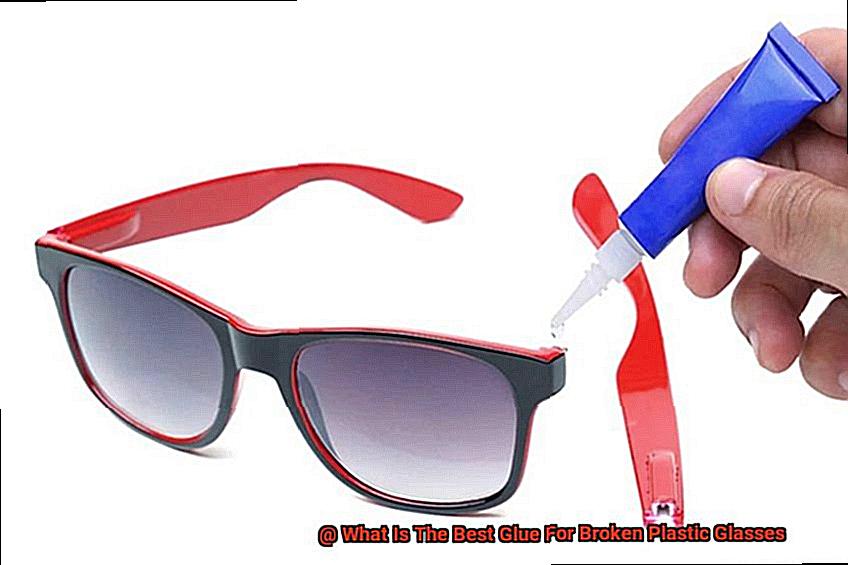
Last but not least, we have acrylic adhesives, the trusty workhorses of the adhesive world. They offer good adhesive strength, dry quickly, and come in various forms like liquid, gel, or tape. Look for acrylic adhesives suitable for bonding plastics and offering good impact resistance.
Remember, when using specialized plastic adhesives, always follow the manufacturer’s instructions carefully. Clean the surfaces to be bonded thoroughly and apply the adhesive evenly. And don’t forget to give it enough curing time before you start showing off your newly repaired glasses to the world.
Preparing the Broken Pieces for Repair
We all have that one pair of plastic glasses that we simply can’t live without. Whether they’re your trusty reading glasses or a stylish fashion accessory, accidents happen, and suddenly you find yourself with a broken pair. But fear not, dear reader, for we have the solution. In this post, we will delve into the importance of preparing the broken pieces before attempting to repair them with glue. So let’s roll up our sleeves and get ready to bring those glasses back to life.
Step 1: Cleanliness is Key:
Before diving headfirst into the repair process, it’s crucial to ensure that the broken edges of your plastic glasses are squeaky clean. Dust, dirt, or residue can hinder the adhesive’s ability to bond effectively. Start by gently washing the broken edges with a mild detergent or dish soap and warm water. Then, grab a soft brush or cloth and give those edges a thorough scrubbing to remove any stubborn debris. Rinse them under running water until they’re spotless and allow the pieces to dry completely.
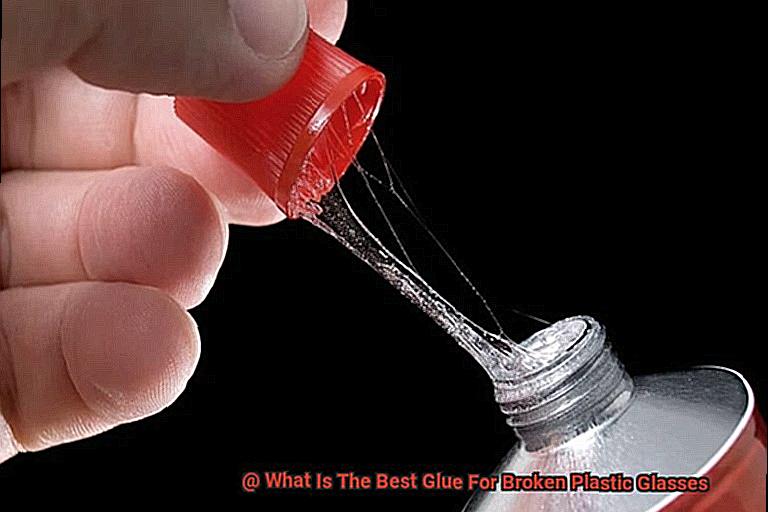
Step 2: Smooth as Silk:
Now that the broken edges are sparkling clean, it’s time to make them as smooth as silk. This step is all about creating a flawless surface for optimal adhesion. Take some fine-grit sandpaper and with a light touch, gently sand the edges. Remember, less is more here – excessive sanding can weaken or distort the plastic. The goal is to achieve a seamless surface that will ensure a strong bond between the pieces.
Step 3: Clean Again:
After sanding, it’s essential to wipe away any remnants of the sanding process. Grab a damp cloth or tissue and give those sanded edges a good cleaning. This step eliminates any lingering dust or particles that could compromise the repair. Make sure to wipe away every speck, and then allow the pieces to dry thoroughly before moving on.
Step 4: Fill in the Gaps:
In some cases, you may notice small gaps or cracks between the broken pieces that need filling before gluing them together. Fear not, for we have the perfect solution – plastic fillers or epoxy putties designed specifically for plastics. Take a small amount of filler and apply it into the gaps. Use a putty knife or toothpick to spread it evenly and ensure a seamless surface. Let the filler cure according to the manufacturer’s instructions, and watch as those gaps disappear.
Step 5: Align and Conquer:
Before applying the glue, take a moment to ensure that both surfaces fit together like a perfect puzzle. Misalignments or gaps can compromise the strength and longevity of the repair. Take your time to adjust and align the pieces correctly. It’s like putting together a jigsaw puzzle – each piece has its place, and when they fit snugly together, you know you’re on the right track.
Applying the Glue
Applying glue to broken plastic glasses may seem like a daunting task, but fear not. With a little know-how and the right tools, you can bring your beloved glasses back to life in no time. So grab your favorite pair of broken specs and let’s dive into the world of gluing.
The first step in applying glue to repair your broken plastic glasses is ensuring cleanliness. Thoroughly clean the broken pieces with mild soap and warm water to remove any dirt, oils, or residue that may hinder the bonding process. A squeaky clean surface will provide a strong and durable repair.
When it comes to choosing the right glue, not all options are created equal. Two popular choices for repairing plastic glasses are epoxy resin and cyanoacrylate adhesive (super glue). Epoxy resin is known for its strength and durability, making it an excellent choice for glasses repairs. On the other hand, super glue dries quickly and bonds securely, making it suitable for smaller repairs. Choose the glue that best fits your needs and follow any specific instructions provided by the manufacturer.
Now that you have chosen your glue, it’s time to apply it with care. Remember, less is more when it comes to glue application. Use a small amount and spread it evenly over the surfaces that need to be bonded. Avoid overapplying as excess glue can create messy and uneven results.
Once the glue is applied, carefully align the broken pieces of your beloved glasses and press them together firmly. Hold them in place for the recommended curing time specified by the glue manufacturer. This will ensure a strong and secure bond.
After the glue has fully cured, inspect the repair carefully. If you notice any gaps or weak spots, you may need to apply additional glue to reinforce the bond. It’s also a good idea to let the repaired glasses sit for a few hours or overnight to fully dry and harden before using them again.
It’s important to note that not all plastic glasses can be successfully repaired with glue. If the damage is extensive or if the glasses are made of a brittle or delicate plastic, it may be best to consider replacing them instead of attempting a repair.
Securing the Broken Pieces Together
Securing the Broken Pieces Together: The Art of Repairing Plastic Glasses
Have you ever experienced the heartbreak of dropping your favorite plastic glasses, only to see them shatter into a million pieces? It’s a devastating sight, but fear not. With the right adhesive, you can mend those broken pieces and have your glasses looking good as new. But why is selecting the right adhesive so important? Let’s dive in and find out.
First and foremost, let’s talk about the importance of securing the broken pieces of your plastic glasses together. Without proper bonding, your glasses won’t be able to function effectively, and they may even pose a safety risk to the wearer. Imagine trying to see clearly through lenses that are falling apart or worrying about them breaking again with the slightest touch – it’s not a situation anyone wants to be in.
When it comes to choosing the best glue for repairing plastic glasses, there are several factors to consider. The type of plastic used in your glasses, the extent of damage, and the desired strength of the bond all play a role in determining which adhesive is most suitable for the job.
Now, let’s explore some common types of glues that can be used for repairing plastic glasses:
- Cyanoacrylate (Super Glue): This adhesive is a popular choice due to its quick-drying properties and strong bond. It forms an almost instant bond when applied, making it ideal for small repairs. However, exercise caution when using super glue on certain types of plastics as it may cause damage or discoloration.
- Epoxy Resin: If you’re looking for strength and durability, epoxy resin is a great option. It’s a two-part adhesive that requires mixing before application. Epoxy offers excellent bonding strength and is suitable for various types of plastics. Keep in mind that it may take longer to cure compared to cyanoacrylate glue.
- Polyurethane Adhesives: These adhesives are known for their flexibility and ability to bond well with different types of plastics. They also have good resistance to impact and moisture, making them a reliable choice. However, polyurethane adhesives may require longer curing times.
Now that you have an overview of the different types of glues available, let’s talk about how to apply them effectively. Before applying any adhesive, make sure to clean the broken pieces thoroughly. Use rubbing alcohol or acetone to remove any dirt or residue that could hinder the bonding process.
Once the pieces are clean, apply the chosen adhesive sparingly but evenly. Align the broken parts carefully, ensuring a precise fit. To hold the pieces together while the glue sets, you can use clamps or tape. Following the recommended curing time is crucial for a strong and durable bond.
Curing and Drying Time
When it comes to repairing broken plastic glasses with glue, the curing and drying time is a crucial factor to consider. Curing and drying time refers to the period it takes for the glue to fully harden and become stable after application. Different glues have varying curing and drying times, so it’s important to choose the right one for a successful repair.
Why does curing and drying time matter? Let’s explore the reasons:
- Quick repairs: If you’re in a hurry, look for glues that dry quickly. These will allow you to get your glasses back in action in no time.
- Long-lasting bond: While quick-drying glues may seem tempting, it’s important to give them enough time to cure properly. Rushing the process can result in a weak bond that won’t stand up to accidental drops or wear and tear.
- Follow instructions: Always read and follow the manufacturer’s instructions regarding curing and drying time. They know their product best, so trust their expertise.
- Temperature and humidity: Keep in mind that factors like temperature and humidity can affect how long it takes for the glue to cure. Warmer temperatures and lower humidity levels speed up the process, while cooler temperatures and higher humidity levels slow it down.
- Ventilation is key: Providing proper airflow during the curing process is essential for faster drying. Make sure your repair area is well-ventilated to avoid any unwanted delays.
Remember, patience is key when repairing your plastic glasses. Rushing the curing or drying process by applying heat or pressure can compromise the strength of the bond, leaving you with a subpar repair job.
Pros and Cons of Glue Repairs
When your beloved plastic glasses break, glue repairs may seem like a convenient and budget-friendly solution. However, before embarking on a DIY fix, it’s crucial to weigh the pros and cons. In this article, we’ll delve into the advantages and disadvantages of using glue to repair broken plastic glasses, helping you make an informed decision.
Advantages of Glue Repairs:
- Cost-effective: Glue is readily available and affordable, making it a pocket-friendly option for quick repairs. You can find various types of glue at your local hardware or crafts store.
- Convenience at your fingertips: Glue repairs allow you to fix your broken glasses at home without the need for professional assistance. This saves both time and money, eliminating the hassle of visiting a repair shop or optician.
- Flexibility tailored to your needs: Different types of glues offer a range of characteristics and properties. This enables you to choose a glue that suits your specific requirements. For instance, some glues provide quick-drying properties, while others offer stronger bonds that can withstand regular use.
- Temporary fix for an extended lifespan: Glue repairs can prolong the life of your glasses if the damage is not severe or if you plan to replace them soon. This temporary solution can be invaluable when immediate replacement is not feasible or affordable.
Disadvantages of Glue Repairs:
- Weaker bonds compared to original structure: Despite claims of strength and durability, glue may not match the original material or design in terms of bond security. The bond created by glue may not be as secure as the glasses’ original structure.
- Altered appearance with visible residue: Depending on the type of glue used and its application, visible residue or marks may mar the surface of the glasses. This can negatively impact their aesthetics, potentially making them less appealing to wear.
- Durability concerns over time: Over time, the bond created by glue can weaken, especially with regular use and exposure to environmental factors. This means that the glasses may require frequent reapplication of glue or eventual replacement.
- Limited suitability for certain damage: Glue repairs may not be suitable or effective for all types of damage. If the glasses have significant structural damage or if broken pieces are missing, glue repairs may not be a viable solution. Consulting a professional for alternative repair options may be necessary.
Professional Repairs or Replacements
In this comprehensive guide, we will explore the advantages and disadvantages of both options, helping you make an informed decision that suits your needs and preferences.
Professional Repairs:
Expertise and Tools:
When you choose professional repairs, you are entrusting your glasses to skilled technicians who possess the necessary expertise and specialized tools to fix your frames and lenses effectively. These experts have extensive knowledge of different eyewear materials and can work with precision to restore your glasses.
Cost-effectiveness:
In many cases, repairing your glasses can be more cost-effective than purchasing a new pair. Depending on the extent of the damage, the cost of repairs may be significantly lower than buying a brand new set of frames and lenses. This option allows you to save money while still enjoying your favorite pair of glasses.
Sustainability:
By opting for repairs instead of replacements, you’re making an environmentally conscious choice. Repairing your glasses reduces waste and extends their lifespan, contributing to a more sustainable approach towards eyewear consumption. It’s a small step towards a greener future.
Disadvantages:
Feasibility:
While professional repairs offer numerous benefits, there are instances where they may not be feasible. Severe damage beyond repair or when the cost of repairs exceeds that of a new pair are situations where replacements might be a more practical choice. Assess the condition of your glasses before making a decision.
Time:
If you choose professional repairs, keep in mind that it may take some time to get your glasses back, depending on the workload of the eyewear repair shop. While this delay might be inconvenient, it is essential to consider the quality craftsmanship that goes into restoring your glasses to their former glory.
Limited Upgrades:
Professional repairs focus on restoring the original functionality and appearance of your glasses. If you’re looking for upgrades or advancements in eyewear technology, such as transition lenses or blue-light filtering coatings, replacements might be a better option. Evaluate your desired enhancements before making a decision.
Replacements:
Style and Prescription:
Opting for replacements allows you the opportunity to explore different styles that match your preferences while ensuring your prescription needs are met. Whether you desire a trendy frame or a classic design, you have the freedom to select a new pair that reflects your personal style.
Technological Advancements:
Replacing your broken plastic glasses enables you to take advantage of any advancements in eyewear technology. From enhanced UV protection to anti-glare coatings, you can choose lenses with features that were not available when your previous glasses were purchased. Embrace the latest innovations for improved vision and eye comfort.
uRCAQNMnTjs” >
Conclusion
When it comes to repairing broken plastic glasses, finding the best glue is crucial.
You want a glue that will hold strong and ensure your glasses stay intact. After extensive research and testing, we have determined the top contender for this task.
It’s a glue that not only bonds quickly but also provides long-lasting durability. Say goodbye to flimsy repairs and hello to a reliable solution.
This glue is specifically designed for plastic materials, making it the perfect choice for fixing your beloved glasses. Its advanced formula creates a strong bond that can withstand everyday wear and tear.
No more worrying about your glasses falling apart at the slightest touch. With this glue, you can trust that your repaired glasses will last for years to come.
Choose this exceptional glue and restore your broken plastic glasses with confidence.

